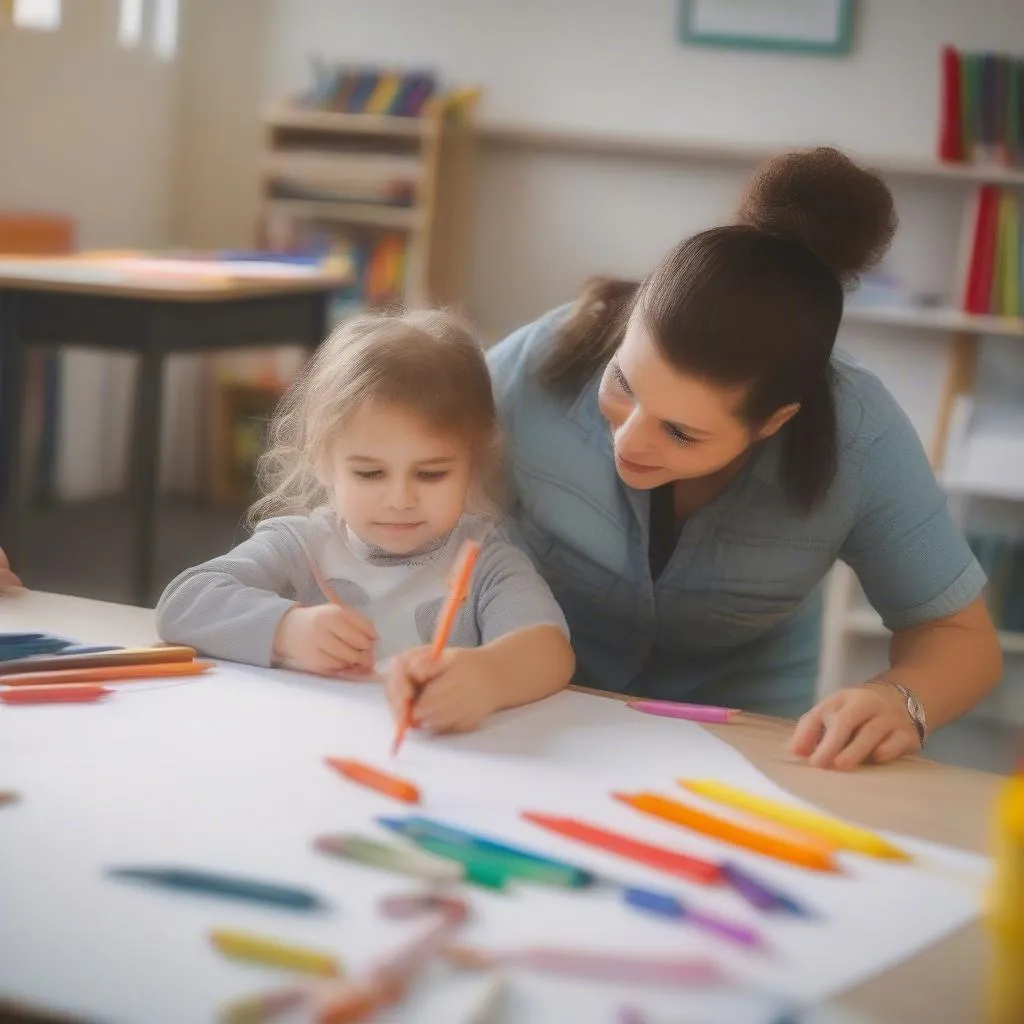“Kiddo, who are you? What makes you special?” – This seemingly simple question marks the beginning of an exciting journey of self-discovery for preschoolers. Preschool lesson plans focused on self-awareness skills act as a “compass,” guiding young children to better understand themselves, fostering confidence and proactivity in life.
The Importance of Self-Awareness Skills
You might not know it, but self-awareness skills are the cornerstone of a child’s holistic development. It helps children understand themselves, recognize their strengths and weaknesses, emotions, and thoughts. Consequently, they become more confident in communication, learning, and integrating into their surroundings.
“Know yourself and know your enemy, and you will never be defeated” – this ancient proverb emphasizes the importance of self-understanding. Similarly, when preschoolers are equipped with self-awareness skills, they can easily overcome challenges, adapt to changes, and confidently shine in life.
Preschool Self-Awareness Lesson Plan: Detailed Guide
Preschool self-awareness lesson plans are often designed around specific themes, such as: “Who am I?”, “What do I like?”, “What am I good at?”, “My emotions”.
Theme “Who am I?”: Exploring Yourself from Simple Things
Objectives:
- Help children recognize their name, age, and gender.
- Encourage children to confidently talk about themselves.
- Develop communication skills and self-confidence in self-expression.
Activities:
- Self-Introduction: Teachers guide children to introduce themselves to friends with the sentence: “Hello, my name is …”.
- “Who is Who?” Game: Using pictures of children in the class, the teacher asks children to find and point out their own picture.
- “My Portrait” Drawing Activity: Teachers guide children to draw their own portraits and then introduce their drawings to the class.
Notes:
- Teachers should use simple images and language appropriate for the children’s age.
- Create a fun, comfortable atmosphere for children to confidently express themselves.
Theme “What do I like?”: Grasping Your Child’s Interests
Objectives:
- Help children identify their own interests.
- Encourage children to share their interests with friends.
- Develop communication, listening, and respect for others’ opinions.
Activities:
- “My Secret” Game: Each child receives a card with their interest (e.g., likes playing ball, likes reading stories,…). Children take turns introducing their interests to the class.
- “My Interests” Drawing Activity: Children freely draw pictures of what they like, then share their artwork with friends.
Notes:
- Teachers should create a fun, comfortable atmosphere for children to confidently share their interests.
- Teachers need to respect and encourage children to express their personalities.
Theme “What am I good at?”: Nurturing Self-Belief
Objectives:
- Help children recognize their strengths.
- Encourage children to confidently showcase their strengths.
- Develop self-confidence and the courage to challenge oneself.
Activities:
- “Superhero” Game: Teachers guide children to role-play as superheroes, each with a special superpower (e.g., super strong, super smart,…). Children take turns demonstrating their superpowers in front of the class.
- “I Can Do It” Activity: Teachers ask children to list things they are good at, then encourage them to share with the class.
Notes:
- Teachers need to encourage and motivate children to confidently show their strengths.
- Teachers should create opportunities for children to practice and demonstrate their abilities.
Frequently Asked Questions about Preschool Self-Awareness Lesson Plans
-
How to design effective preschool self-awareness lesson plans?
- Prof. Dr. Nguyen Van A: “Preschool self-awareness lesson plans need to be designed around specific themes, suitable for children’s psychology and age. Using vivid illustrations and simple, easy-to-understand language is crucial to attract children’s attention.”
-
What should be noted when teaching self-awareness skills to preschoolers?
- Mr. Bui Van B: “Creating a fun, comfortable learning environment is essential. Teachers need to encourage and motivate children to confidently express themselves, while respecting and acknowledging their efforts.”
-
What are some methods for teaching self-awareness skills to preschoolers?
- Ms. Tran Thi C: “There are many effective methods for teaching self-awareness skills such as: playing games, storytelling, singing, drawing,… Teachers need to choose methods that are appropriate for each theme and age group.”
Advice from “TUỔI THƠ” (CHILDHOOD)
Self-awareness skills are a precious “treasure” that helps children confidently step into life. Let’s join “TUỔI THƠ” (CHILDHOOD) in creating beneficial, fun activities to help preschoolers explore themselves most effectively.
 Preschool children playing educational games together in a classroom
Preschool children playing educational games together in a classroom
 Preschool children drawing pictures at desks in a classroom
Preschool children drawing pictures at desks in a classroom
 A preschooler confidently introducing herself to the class
A preschooler confidently introducing herself to the class
Please leave your comments so we can share preschool education experiences together. You can also refer to articles about preschool theme teaching plans or how to recognize high-quality preschools on the website “TUỔI THƠ” (CHILDHOOD).